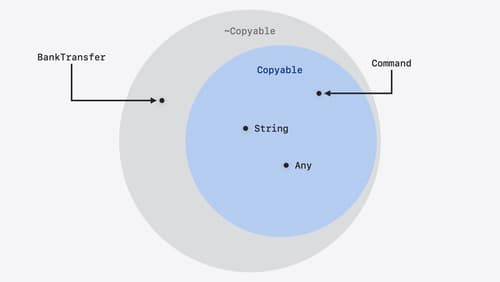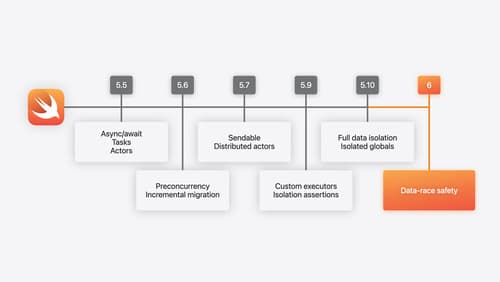noncopyableの使い所は?
Asked on 2024-08-07
1 search
Noncopyable types in Swift are useful in scenarios where you want to ensure unique ownership of a resource or prevent unintended copies that could lead to errors or resource leaks. Here are some specific use cases:
-
Unique System Resources: Noncopyable types are ideal for representing unique system resources, such as files. By making a file handle noncopyable, you can prevent multiple writers from accessing the same file simultaneously, which helps avoid data corruption and resource leaks. For example, a noncopyable struct with a deinitializer can automatically close a file, ensuring proper cleanup (What’s new in Swift).
-
Preventing Errors in Critical Operations: In situations where copying a value could lead to critical errors, noncopyable types can help. For instance, in a banking application, a bank transfer should not be copied to avoid running the same transfer multiple times. By making the bank transfer type noncopyable, you can ensure that each transfer is unique and only executed once (Consume noncopyable types in Swift).
-
Low-Level Systems with Resource Constraints: Noncopyable types are also appropriate for low-level systems with severe resource constraints, where the cost of copying values can be prohibitive. In such systems, noncopyable types allow for fine-grained control over performance and resource management (What’s new in Swift).
-
Generic Programming: Noncopyable types can be used in generic programming to improve the correctness of your code. For example, you can define generic types and protocols that work with noncopyable types, allowing for more flexible and safe code (Consume noncopyable types in Swift).
For more detailed information, you can refer to the session Consume noncopyable types in Swift.

Consume noncopyable types in Swift
Get started with noncopyable types in Swift. Discover what copying means in Swift, when you might want to use a noncopyable type, and how value ownership lets you state your intentions clearly.

What’s new in Swift
Join us for an update on Swift. We’ll briefly go through a history of Swift over the past decade, and show you how the community has grown through workgroups, expanded the package ecosystem, and increased platform support. We’ll introduce you to a new language mode that achieves data-race safety by default, and a language subset that lets you run Swift on highly constrained systems. We’ll also explore some language updates including noncopyable types, typed throws, and improved C++ interoperability.
